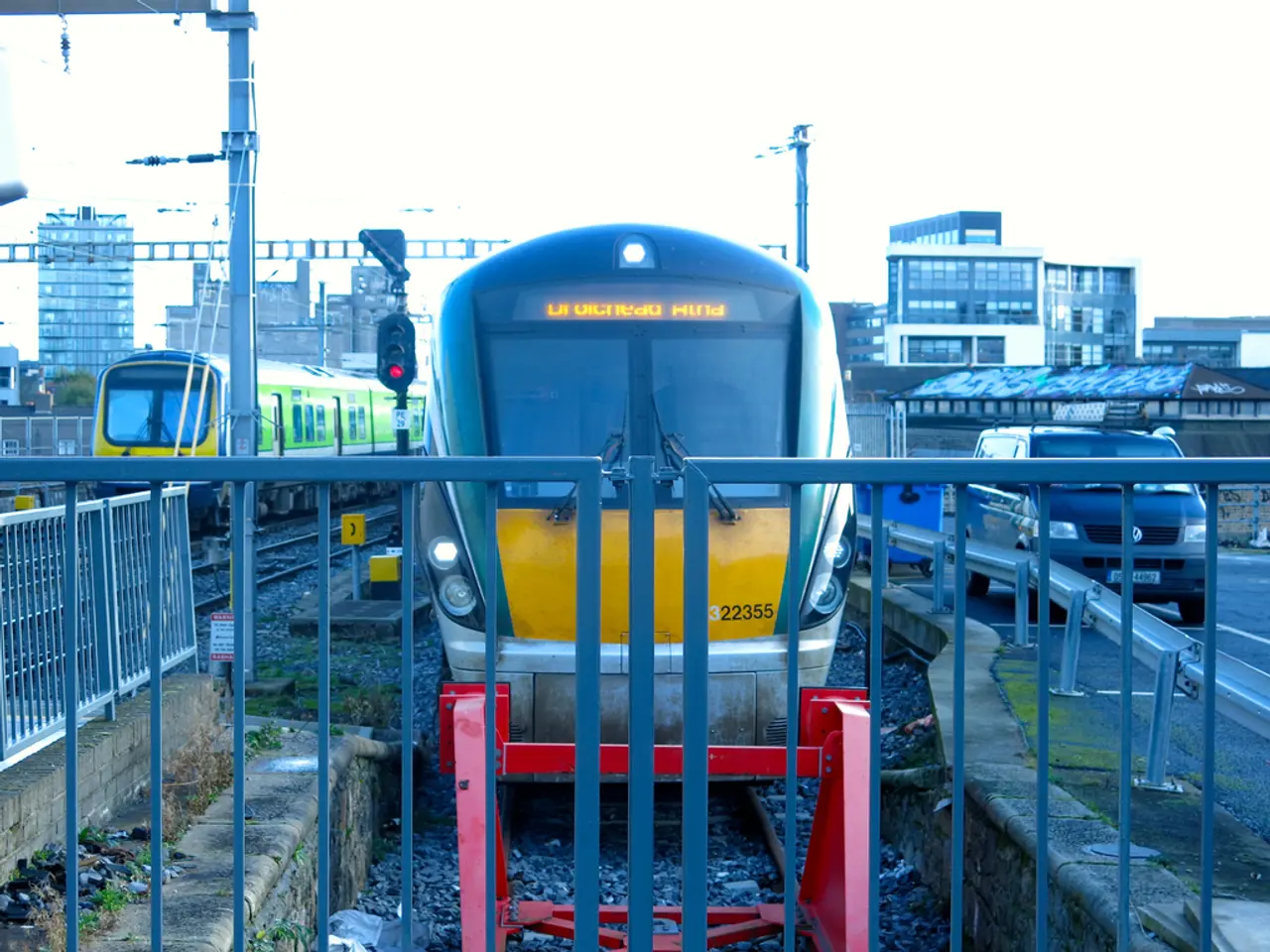Despite projected increased passenger numbers in 2025, Deutsche Bahn anticipates continued financial losses.
In the first half of 2025, Deutsche Bahn (German Rail) faced significant challenges due to fault-prone infrastructure and a high number of construction sites for maintenance and overhaul. These issues have negatively impacted punctuality and operational efficiency, causing revenue to fall short of expectations.
The disruption-prone infrastructure led to continued poor punctuality, with only 63.4% of long-distance trains arriving on time, slightly improved from 62.7% the previous year but still below expectations. This poor punctuality, in turn, suppressed revenue growth, which increased by only 3.4% to €13.3 billion, less than anticipated.
Despite these challenges, Deutsche Bahn managed to reduce its operating loss (EBIT) by nearly €1 billion compared to the first half of 2024. The adjusted EBIT loss for the first half of 2025 was €239 million, and net income losses were halved to €760 million.
The federal government’s assumption of upfront costs for infrastructure maintenance and a restructuring program focusing on cost discipline and administrative streamlining were significant factors in improving the financial outcome. Major renovation projects, such as the Berlin-Hamburg line closure for nine months starting August 2025, are underway but will cause ongoing operational challenges before yielding improvements.
On a positive note, the number of passengers using German Rail's trains increased, with around 943 million passengers in the first half of 2025, compared to around 919 million in the same period of 2024. Traffic performance in passenger rail also increased, with 41.9 billion passenger kilometers in the first half of 2025, a 3.9% increase from the same period of 2024.
However, the result after taxes for German Rail in the first half of 2025 was -€760 million. Last year's loss for German Rail was €1.6 billion. No new information about the tax-adjusted result for German Rail in the first half of 2025, including positive one-time effects, is provided.
This situation reflects ongoing structural issues that Deutsche Bahn is working to resolve by 2027 through extensive infrastructure overhaul and operational reforms. The company is aiming to improve its financial performance and punctuality to meet the expectations of its passengers and stakeholders.
The ongoing infrastructure issues adversely affected the punctuality of German Rail, leading to a revenue growth that fell short of projections, as only 3.4% increase was observed, amounting to €13.3 billion. The finance sector keenly observes this as the challenge directly impacts the profitability of one of Germany's major industries, transportation. A restructuring program focusing on cost discipline and administrative streamlining, with the federal government assuming upfront costs for infrastructure maintenance, are measures being implemented to address these financial concerns.




